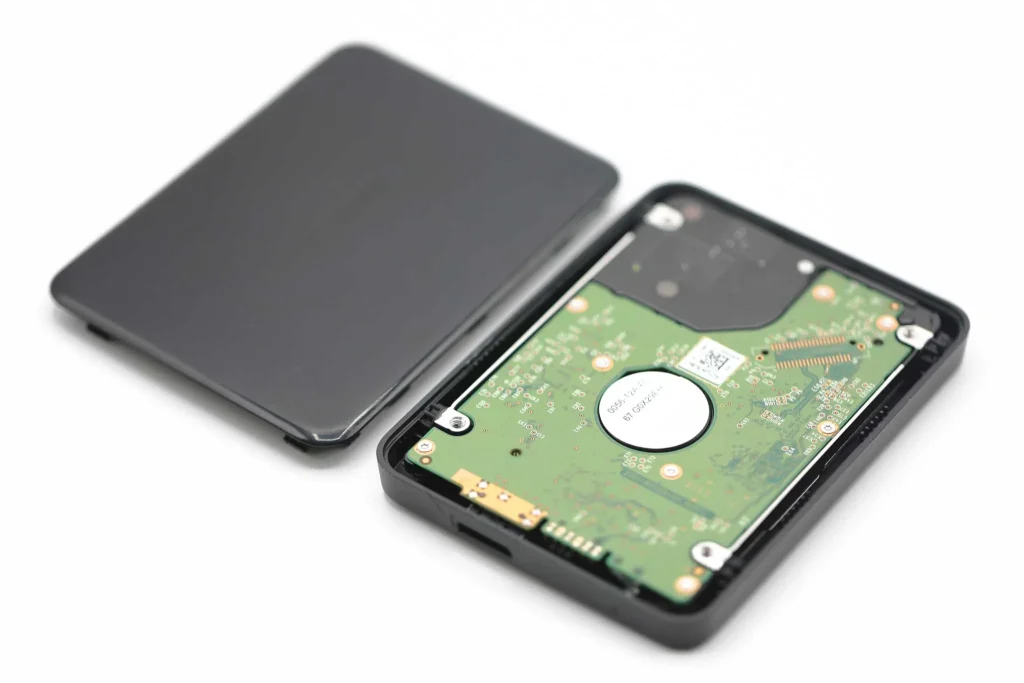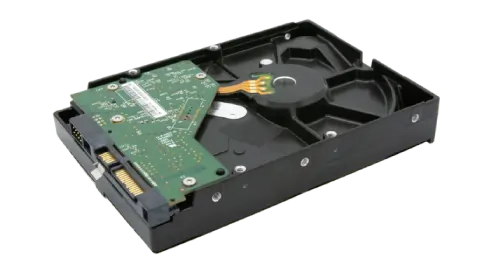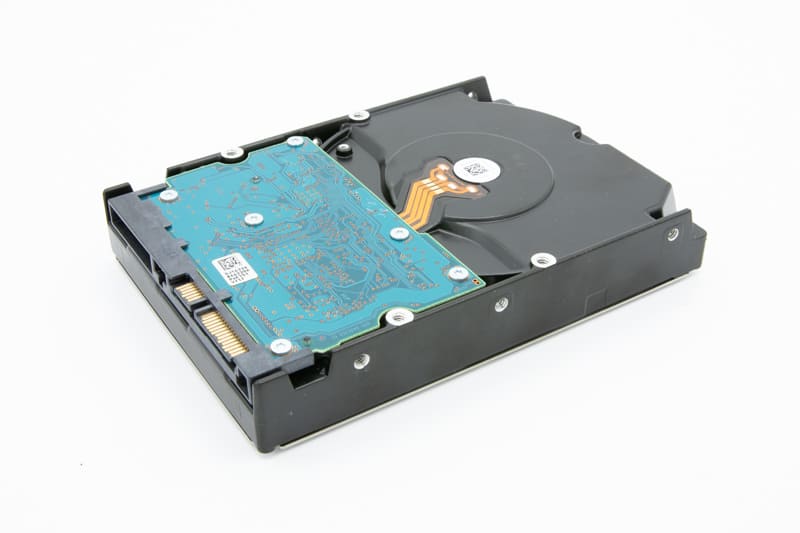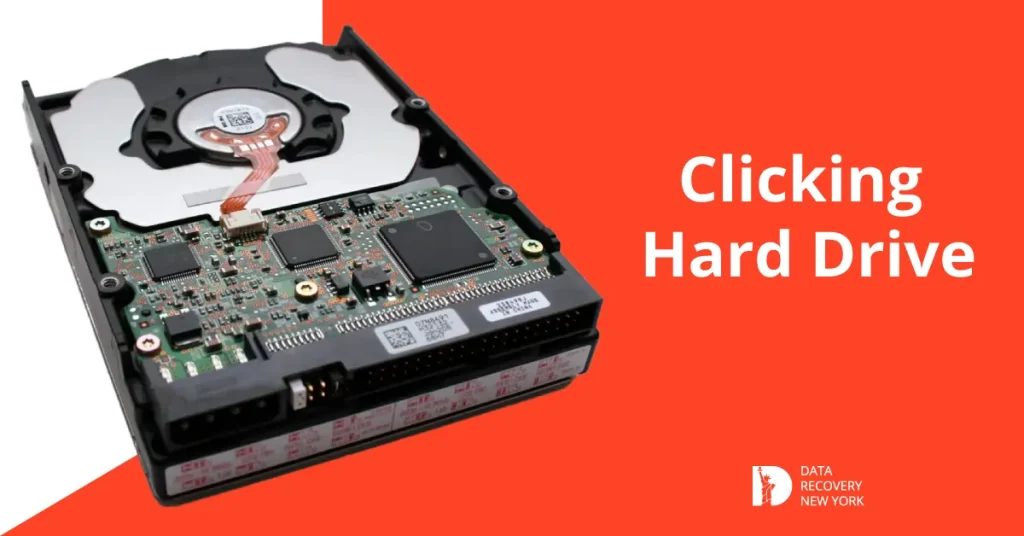The clicking sound of a failing hard drive, known as the “click of death,” triggers urgency in users. Immediate action is vital to safeguard data from permanent loss. Recovery involves preventative maintenance and professional services for successful data retrieval and system restoration. Early detection of hard drive issues is crucial for effective recovery.
Additional Causes of Hard Drive Clicking
A clicking sound from a hard drive can indicate a potential problem needing attention. By comprehending these reasons, you can adopt protective actions to avoid data loss and guarantee the durability of your hard drive. Let’s dive into the hard drive world and uncover the root causes of this alarming sound.
- Manufacturing Defects: Occasionally, a hard drive may come with a manufacturing defect that could lead to clicking sounds. These defects include issues with internal components that only become apparent when the drive is under regular operational stress.
- Bad Sectors: Over time, hard drives can develop bad sectors—areas of the disk that cannot be read or written properly. When the read-write head encounters these bad sectors, it may repeatedly attempt to read from the sector and fail, leading to clicking noises.
- Excessive Heat: Heat is a common nemesis of electronic components, including hard drives. If a drive overheats, it can cause the components to expand and potentially fail, resulting in clicking sounds, especially if the read-write head or platters are affected.
- Firmware Corruption: The firmware is the software coded into the hard drive that controls its operation. If this firmware becomes corrupted, it can lead to the misbehavior of the drive, such as the read-write head not functioning correctly, which may cause clicking sounds.

- Mechanical Wear: Similar to other mechanical devices, a hard drive can experience mechanical wear over time. Components such as the spindle motor that rotates the platters can wear down, leading to clicks as they fail to spin correctly.
- Foreign Objects: Dust or other particulates that find their way into the hard drive enclosure can interfere with the normal operation of the read-write head and platters, sometimes resulting in clicking noises when these objects disrupt movement.
Each of these issues presents challenges when diagnosing and fixing the clicking sound from a hard drive. It’s crucial to approach them with care and, if necessary, to consult a professional for data recovery and repair.
Signs of Hard Drive Failure
The insidious clicking sound emanating from a hard drive is often the announcer of impending failure, serving as an early warning signal alerting users to take immediate action. Recognizing these auditory cues is crucial, as they can indicate various underlying problems ranging from mechanical issues to software corruption.

- Unusual Noises: Beyond clicking, strange noises like grinding or screeching can indicate mechanical issues and potential failure.
- Frequent Freezing: A computer that hangs or freezes regularly may be experiencing hard drive issues.
- Corrupted Files: Files that fail to open or show up as corrupted without an apparent reason may suggest hard drive damage.
- Disappearing Data: When files or folders vanish or become inaccessible, it could indicate a failing hard drive.
- Slow Performance: If a computer starts to operate slowly, especially during disk-intensive tasks, this could be symptomatic of a hard drive problem.
- Blue Screen of Death (BSOD): Frequent appearances of the BSOD on a Windows machine can be caused by hard drive issues.
- Error Messages: During bootup or while trying to access files, error messages indicating failure to read or write data can point to a failing drive.
- Bad Sectors: Hard drives with bad sectors that increase in number or fail to be repaired by utility software can be a sign of impending failure.
Possible Hard Drive Failure Reasons
Another factor to consider when addressing the issue of hard drive clicking and potential failure is the power supply. Insufficient power can lead to underperformance of the hard drive’s motor, causing inconsistent spinning and eventual clicking noises.
- Lower Power Source: Ensure the hard drive is connected to a power source that delivers adequate voltage and amperage. Using a multi-drive setup, ensure the power supply unit (PSU) is robust enough to handle all connected devices.
- Overwhelmed Power Socket: An overloaded power socket might need consistent power to the computer’s PSU, leading to hard drive clicks. Plug the laptop into a different socket or use a power strip with surge protection and enough capacity.
- Handling Sensitive Components: Hard drives have delicate parts sensitive to shock and contaminants. Work in a clean, controlled environment when troubleshooting. Avoid using the wrong tools to prevent damage.

In case of suspected power issues, using a different cable or power supply could clarify if the problem is related to power. It’s important to protect the drive from bumps or vibrations and to handle the device with maximum care during any physical action. If the root of the problem is not immediately clear or the drive contains sensitive data, it may be best to cease troubleshooting and consult with a professional. Attempting to fix a mechanical failure on your own can lead to data loss or further damage to the drive.
Professional Hard Drive Recovery Services
Specialized data recovery services, like those offered by Data Recovery New York, are essential for recovering valuable information inaccessible due to a hard drive malfunction. When devices succumb to mechanical faults, software errors, or physical damage, attempting recovery without the necessary expertise can lead to permanent data loss. That’s where specialists like those at Data Recovery New York come into play.

Boasting a team of experienced professionals, this company utilizes modern technology and techniques to maximize the chances of successful data recovery. Equally important, they maintain stringent data security protocols to uphold clients’ privacy.
Data Recovery New York professionals recognize the urgency and sensitivity of data loss situations. With a dedicated team that includes electrical engineers, mechanical specialists, and software developers, they are equipped to handle a wide spectrum of data loss scenarios.
Whether the recovery requires cleanroom environments to address physical damage or advanced algorithms to tackle logical corruptions, their comprehensive approach is designed to restore client data quickly and effectively. This team works tirelessly to recover lost data and provides customers insights into preventing future data loss events, offering a full spectrum of services from recovery to proactive data protection.
FAQ - Clicking Hard Drive
What causes a hard drive to start clicking?
A clicking sound from a hard drive may signal mechanical failure, often caused by problems with the drive’s read/write head or spindle motor. This could happen from physical harm like dropping the drive, subjecting it to extreme temperatures, or gradual wear and tear.
Can I recover data from a clicking hard drive myself?
Trying to recover data from a clicking hard drive can be risky. You might cause further damage and irreversible data loss without the proper tools and expertise. It’s best to seek professional help from a data recovery specialist with experience with this issue.
How long does recovering data from a clicking hard drive take?
Recovery time can change, sometimes taking a few days to weeks, depending on the job’s complexity and the hard drive’s condition. It is best to consult with a professional for exact information.
What should I do when I hear my hard drive clicking?
It would help if you immediately stopped using the drive to reduce the risk of data loss and consult a data recovery professional as soon as possible to discuss recovery options.
Can regular backups prevent loss of data from a clicking hard drive?
Regular backups will not prevent a hard drive from clicking, but they can ensure that you have a recent copy of your data, minimizing loss in the case of hard drive failure.

